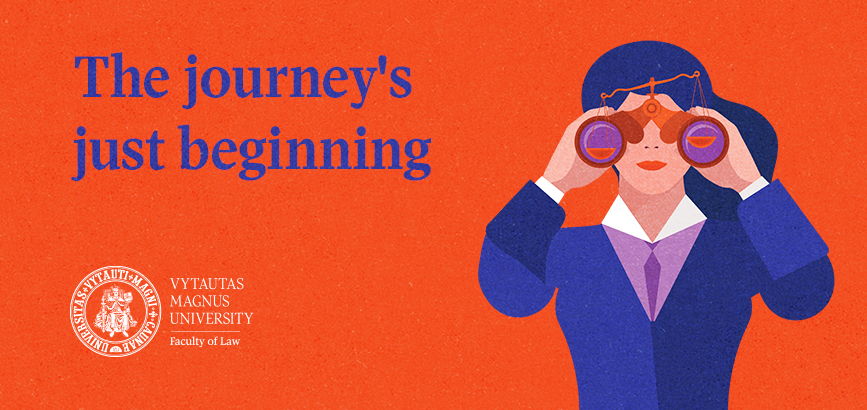International Law Summer School 2021
The courses will take place on 3 May – 11 June, 2021 at Vytautas Magnus University Faculty of Law
PICK THE COURSE(S) – 4 ECTS EACH:
3 – 12 May INTERNATIONAL BUSINESS TRANSACTIONS (prof. Daniel Barnhizer, Michigan State University College of Law)
This course surveys the complex subject of international business transactions. This includes international sales of goods, financing international transactions, payment systems, establishing and operating foreign investments, operating under the General Agreement on Tariffs and Trade and World Trade Organization, intellectual property and technology transfer, criminal law, dispute resolution, and other issues. All of these topics relate to one basic problem — how to engage in a business transaction with a foreign entity or person. In domestic trade, both parties are subject to the same sovereign government that controls the law and the sanctions that apply to the parties. The parties likely share a common language, similar business norms, and may even operate in the same financial circles. International business transactions involve issues of different governments, different locations, different laws, different languages (in many cases), different business norms, and other issues that potentially increase the complexity of the transactions by orders of magnitude. This course will give enough experience to be aware of some of these risks to be able to effectively advise clients or prepare a respond to those risks
3 – 12 May ARTIFICIAL INTELLIGENCE AND LAW (prof. Miglė Laukytė, Pompeu Fabra University Barcelona)
The course is dedicated to introduce law students to Artificial Intelligence (AI) and robotics and legal issues related, caused or impacted by them. The overall goal is to make students think, critically assess and form a position on the new challenges to the legal, philosophical and ethical assumptions that current legal knowledge and expertise is based on. In particular, the course aims to look at where the AI is heading and what risks it is raising from the legal perspective. This objective is out of reach without making students familiar with some of the basic concepts and the early applicationson which the current advancements of AI and robotics are being build upon.
17 – 26 May ENERGY LAW (prof. Christopher S. Kulander, South Texas College of Law Houston)
This course introduces students to some of the basic legal and economic principles needed to counsel entities that develop energy worldwide. By the end of the class, students will have been introduced to a survey of the past, present, and future of energy use worldwide, followed by a survey of oil and natural gas exploration, use, and regulatory law in North America, Europe, and beyond. Students will also be exposed to a discussion of the development of coal, nuclear, and renewable energy sources. A survey of laws and concepts related to international energy agreements, sanctions law, anti-bribery and anti-corruption, sovereign immunity, and the international law of the sea will follow. In addition, 1-2 in-class drafting and negotiation exercises may be conducted as time permits.
17 – 26 May SPACE LAW (prof. Stefan Kirchner, University of Lapland)
Space operations and services are no longer the exclusive domain of states. The term “New Space” describes a rapidly growing space industry which brings together large and small companies as well as state and non-state actors and international organizations and consortia. Everyday life in developed countries is often impossible to imagine without the nearly constant use of space-related products and services. Space operations mark a field which is, like few others (for example scientific work in Antarctica), characterized by international cooperation and, increasingly, by cooperation between public and private actors. Contemporary and emergent forms of space operations and related services make space an attractive area of work also for private and government actors from small nations. This can range from the provision of services to the space industry over the use of nanosats by universities to privately operated crewed spacecraft which are due to set course for Moon and Mars in the near future but also to concepts such as asteroid mining. At the current moment in history, science fiction and actual business are becoming almost indistinguishable. It is the purpose of these lectures to introduce the students to the very real legal issues concerning existing and near-future space operations and services.
This course aims to capture the imagination of legal students and to contribute to the economic development of Lithuania, the Baltic region and Europe by giving students the know how needed to provide legal services for the growing space industry also in Lithuania and to get ready for the future needs of corporate clients and public institutions. Starting out as a traditional space law course, the lectures, which will be held in English, then turns into a practice-oriented seminar-style series of events which will tackle particular problems of space operations and services from the perspective of international law.
Students are expected to participate actively and to have a basic, but solid, understanding of Public International Law and an interest in law and technology.
The course will be taught by Stefan Kirchner, Associate Professor at Arctic Centre of the University of Lapland, who obtained his doctoral degree in Social Sciences (Law) from Vytautas Magnus Univesity in 2012 and who currently serves, i.a., as vice-chair of the Space Law Interest Group of the American Society of International Law (ASIL) as well as in ASIL’s Steering Committee for the Areas Beyond National Jurisdiction Signature Topic and that Committee’s Space Subcommittee (please note that, as usual, all opinions expressed here or in the course are not attributable to any organization the lecturer is associated with).
31 May – 9 June MERGERS AND ACQUISITIONS (prof. Arkadiusz Radwan, Vytautas Magnus University)
Mergers and Acquisitions (M&A) are pivotal moments in the life of companies. They involve a number of challenges for senior executives, shareholders, employees, and other stakeholders. They also raise a number of legal questions and require compliance with rules and regulations governing the deal preparation & structure, the acquisition process and the protection of various corporate constituencies. The course covers the key legal aspects of the M&A activity, including negotiated share deals, statutory mergers, merger alternatives, leveraged transactions (including MBO), hostile takeovers of listed companies, cross-border corporate reorganisations as well as some aspects of post-acquisition integration and follow-up disputes. The primary focus is on legal issues with other questions (financial, strategic, tactical) being integrated into the main thread. The course deals with M&A of European companies with some comparative (US) and some sectoral (financial, technology) add-ons.
31 May – 9 June COPYRIGHT LAW (prof. Bernd Justin Jütte, University College Dublin, Sutherland school of law )
The course will introduce students to the core aspects of copyright and their harmonization at EU level. Were appropriate international and comparative elements will be integrated to widen to focus. The course will introduce students to copyright from a historical perspective and map the systematic differences between common law and civil law jurisdictions. International Agreements have significantly shaped copyright and they still serve as mean of interpretation for the rules at EU and national levels. Copyright is harmonized at EU level in by a number of directive and regulations. Harmonization started in 1991 with the first Software Directive and has recently been reshaped by the 2019 Directive on copyright in the Digital single market.
Students will explore what subject matter is protected by copyright and what rights authors and rightsholders enjoy. The focus will be on the economic rights of reproduction, distribution and the right of communication to the public. Subsequently, the course will examine the European system of limitations and exceptions and compare it to the US fair use doctrine, which is often discussed as model for reform. In this context the influence of fundamental rights on EU copyright law will be illustrated. Finally, the course will address the current system and debate on intermediary and platform liability for infringing content. The course will equip students with a basic understanding of the main elements of copyright law and the current policy and academic debates. At the end of the course students will be able to apply the principle underlying copyright law in the context of their domestic legal system, critically engage with the harmonize copyright rules at EU level and appreciate the tension between exclusive right and the interest of the public.
Fee: 1 ECTS = 50 EUR.
Application: The deadline for submitting the application is 30 April, 2021.
Contact person:
Dr. Aušrinė Pasvenskienė
Jonavos st. 66, LT-44191 Kaunas
+370 37 327925
ausrine.pasvenskiene@vdu.lt













